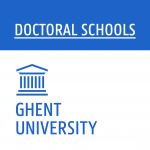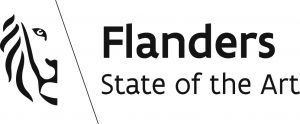 Freddy Tsimba, Centres fermés, rêves ouverts (Tervuren, 2016). Photo credit: Stef Craps
Freddy Tsimba, Centres fermés, rêves ouverts (Tervuren, 2016). Photo credit: Stef Craps
Paper presentation sessions are open to summer school participants only, but the opening event and the keynote lectures are open to the general public upon registration via https://event.ugent.be/registration/Mnemonics25.
Tuesday 9 September – Pre-Event
Venue: Atrium, Faculty Library of Arts and Philosophy, Rozier 44, 9000 Ghent
18:30–18:45
Registration: Pick up your name tag and a printed copy of the summer school programme.
18:45–20:30
Roundtable – Practising Memory in Times of Crisis
A public panel discussion with memory scholars, artists, and activists: Amani El Adad (Gents Kunstenoverleg), Alaa Mahdi Kudaih (photographer and writer), Pieter Lagrou (Université libre de Bruxelles), Manoeuvre vzw, Ann Rigney (Utrecht University), and Michael Rothberg (UCLA)
Moderator: Eva Willems (Ghent University)
20:30–22:00
Reception (for Mnemonics participants only)
Wednesday 10 September – Day 1
Venue for all panels: Teresazaal, Het Rustpunt, Burgstraat 110/116, 9000 Ghent
9:00–9:30
Arrival and Coffee/Tea
Registration: Pick up your name tag and a printed copy of the summer school programme.
9:30–9:45
Welcome and Opening Remarks
Stef Craps (Ghent University), Silvana Mandolessi (KU Leuven), and Pieter Vermeulen (KU Leuven)
9:45–11:00
Keynote Lecture 1
Carlos Fonseca (University of Cambridge) – “Theatres of Memory: From Testimonio to the Forensic Paradigm”
Chair: Stefano Bellin (Pompeu Fabra University)
11:00–11:30
Coffee/Tea Break
11:30–13:00
Panel 1 – Ecological Legacies: Memory, Extraction, and Infrastructures
Chair: Pieter Vermeulen (KU Leuven)
- Patricia Georgina Rico León (Universidad Complutense de Madrid) – “Entangled Memories: Writing Accountability in Cristina Rivera Garza’s Response to Extractivism”
- Ann Pei (University of Illinois, Urbana-Champaign) – “Haunted Freeways: Petro-Infrastructure, Memory, and Resistance in Tropic of Orange”
- Aviva Weizman (York University) – “Responsibility in Retrospect and the Reconstruction of Memory: Lessons from Stari Most”
Respondent: Rick Crownshaw (Goldsmiths, University of London)
13:00–14:00
Lunch
Venue: Het Rustpunt
14:00–15:30
Panel 2 – Multiperspectival Memory: Ethics and Engagement across Narrative Forms
Chair: Pieter Vermeulen (KU Leuven)
- Shivani Arulalan Pillai (University of Oxford) – “‘Read it as you will’: Palimpsestic Memory and Imperial Ruination in Orhan Pamuk’s Silent House”
- Gabriele D’Amato (Ghent University) – “Form and Negotiation in Multiperspective Fictions of Memory”
- Sara Morini (Sapienza University of Rome) – “Memory Strategies at Play: Gendered Trauma in Japanese and Taiwanese Historical Digital Games”
Respondent: Ann Rigney (Utrecht University)
15:30–16:00
Coffee/Tea Break
16:00–17:30
Panel 3 – Colonial Legacies and Pathways to Redress: Memory, Justice, and Accountability
Chair: David Mwambari (KU Leuven)
- Marit van de Warenburg (Utrecht University) – “Spirituals for Solidarity? Re-using Songs to Address Racialized Injustice”
- Rita Elizabeth Maricocchi (University of Münster) – “‘schon wieder?’ Conceptualizing the Cultural Memory of German Colonialism as a ‘Culture of Surprise’”
Respondent: Michael Rothberg (UCLA)
17:45–18:45
Mnemonics Business Meeting (for senior representatives of Mnemonics partner institutions only)
Chair: Stef Craps (Ghent University)
18:00–…
Dinner (free time)
Feel free to explore Ghent’s culinary scene—participants are expected to make their own dinner plans.
Thursday 11 September – Day 2
Venue for all panels: Teresazaal, Het Rustpunt, Burgstraat 110/116, 9000 Ghent
9:00–9:30
Arrival and Coffee/Tea
9:30–11:00
Panel 4 – Intergenerational Trauma and Filial Responsibility
Chair: Barbara Törnquist-Plewa (Lund University)
- Jeanne Devautour Choi (Columbia University) – “‘Elucidate Our Parents’ Past like Detectives’: The Hijes’ Generational Mnemonic Duty in Patricio Pron’s El Espíritu de mis padres”
- Konstantina Tsoleridou (Goethe University Frankfurt) – “Responsibility to Memory, Responsibility to Truth: Competing Imperatives in Thea Halo’s Not Even My Name (2000)”
- Caron Toshiko Monica (Goldsmiths, University of London) – “‘Mulih nDjowo’ – Unveiling Undocumented Legacy: Visual Storytelling and Post-Memory of Javanese Descendants in Suriname”
Respondent: Jessica Ortner (University of Southern Denmark)
11:00–11:30
Coffee/Tea Break
11:30–13:00
Panel 5 – Mediating Memory: Ethical Storytelling and Digital/Visual Resistance
Chair: Victoria Fareld (Stockholm University)
- Atieh Asadollahi (KU Leuven) – “Digital Storytelling as Resistance: Palestinian Narratives, Collective Memory, and Ethical Witnessing in the Social Media Age”
- Bahar Sarıoğlu (Royal Holloway, University of London) – “‘You Are Not Even Allowed Access to Your Own Image’: Cinematic Responsibility and the Ethics of Memory in A Fidai Film”
- Marie Theresa Crick (Goldsmiths, University of London) – “Embodied Methodologies in Memory Studies: Bridging Responsibility, Reparative Action, and Ethical Narratives”
Respondent: Astrid Erll (Goethe University Frankfurt)
13:00–14:00
Lunch
Venue: Het Rustpunt
14:00–15:15
Keynote Lecture 2
Sara Dybris McQuaid (Aarhus University) – “Relocating Responsibility: Administrations of Memory in the Vernacular”
Chair: Eva Willems (Ghent University)
15:15–15:45
Coffee/Tea Break
15:45–17:15
Panel 6 – Holocaust Memory and Educational Responsibility
Chair: Stefano Bellin (Pompeu Fabra University)
- Marianne Kirk (University of Copenhagen) – “Responsibility, Educational Policies, and Local Interpretations: An Ethnographic Study of Holocaust Teaching in Danish Schools”
- Natalie Heidaripour (Newcastle University) – “Interactions of Memory, Responsibility, Empathy and Discomfort at the Museum of Free Derry and America’s Black Holocaust Museum”
Respondent: Brett Ashley Kaplan (University of Illinois, Urbana-Champaign)
17:15–17:30
Coffee/Tea Break
17:30–18:30
Professionalization Session – Ask Me Anything: Building a Career in Memory Studies
Facilitator: Guido Bartolini (Ghent University)
With early-career and senior scholars from the Mnemonics network
19:00–22:00
Summer School Dinner
Venue: Restaurant Brasserie Uilenspiegel, Korte Kruisstraat 3, 9000 Ghent
Friday 12 September – Day 3
Venue for all panels: Teresazaal, Het Rustpunt, Burgstraat 110/116, 9000 Ghent
8:30–9:00
Arrival and Coffee/Tea
9:00–10:15
Keynote Lecture 3
Hanna Meretoja (University of Turku) – “Memory as Interpretation: The Approach of Narrative Hermeneutics”
Chair: Guido Bartolini (Ghent University)
10:15–11:45
Panel 7 – Unpacking Complicity: Perpetrators and Implicated Subjects
Chair: Clara Vlessing (Ghent University)
- Irene Piedrahita-Arcila (University of Glasgow) – “Complexities of Perpetrators’ Responsibilities in the Colombian Armed Conflict”
- Eeva Langeveld (Radboud University Nijmegen) – “Comics Exposing White Innocence: The Dutch Figure of Black Pete and Denied Implication”
- Bhagyashri Vyasaramacharya (Goethe University Frankfurt) – “Shifting Memorabilities and Responsibilities: Tracing Narratives of the Bengal Famine of 1943”
Respondent: Stefano Bellin (Pompeu Fabra University)
11:45–12:15
Coffee/Tea Break
12:15–13:45
Panel 8 – Confronting Violent Pasts: Exile, Responsibility, and Generational Memory
Chair: Eva Van Hoey (Ghent University)
- Jorn Verschuere (Ghent University) – “From Sacrifice to Healing: Resistant Memory Practices in Nicaraguan Exile”
- Janel Pineda (UCLA) – “The Necessary Work of Unforgetting in US Salvadoran Poetry”
- Sophie Pousette (Södertörn University) – “Critical Carriers of Tradition: Bertha Pappenheim as a ‘Jewish’ Translator”
Respondent: Silvana Mandolessi (KU Leuven)
13:45–14:30
Lunch
Venue: Het Rustpunt
14:30–16:00
Decolonial Walking Tour of Ghent (Group 1)
Led by Collectif Mémoire Coloniale et Lutte contre les Discriminations
16:30–18:00
Decolonial Walking Tour of Ghent (Group 2)
Led by Collectif Mémoire Coloniale et Lutte contre les Discriminations
Sponsored by the Doctoral Schools of Ghent University and KU Leuven, with the support of the Flemish Government, as well as by Ghent University’s Department of Literary Studies and Faculty of Arts and Philosophy.
 |
 |
 |
